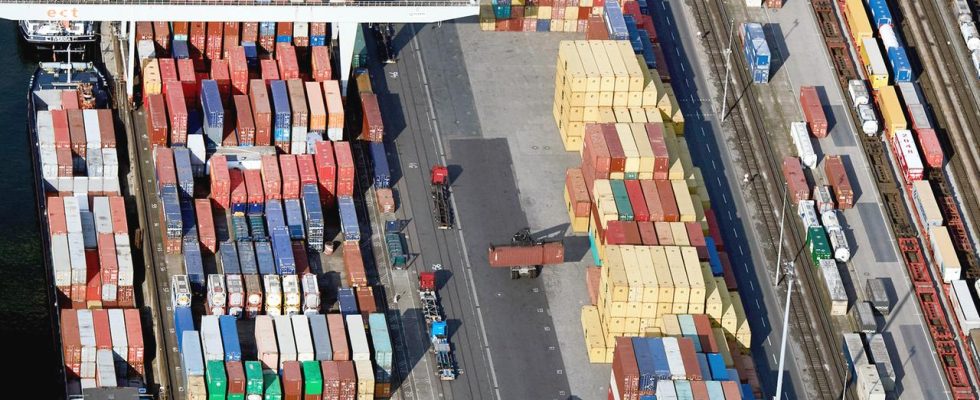Germany’s export companies reported weaker business in May due to falling demand from the EU and the USA. The fall raises concerns about a prolongation of the recession.
The weakening demand for German export goods could prolong the recession in Germany. Shrinking business with the EU and the USA caused exports in May to drop by 0.1 percent to 130.5 billion euros compared to the previous month, as the Federal Statistical Office announced today.
Economists surveyed by the Reuters news agency, on the other hand, had expected growth of 0.3 percent. Compared to May 2022, the decline was even more significant at 0.7 percent. Imports, on the other hand, rose by 1.7 percent to 116.1 billion euros.
Economists warn
“But this once again confirms the suspicion that nothing will come of an economic recovery for the time being,” commented the chief economist at VP Bank, Thomas Gitzel, on the flagging export business.
Europe’s largest economy has recently shrunk for two quarters in a row – mainly because of the reluctance to buy among consumers suffering from falling real incomes. “As of now, the export sector will record another quarterly minus,” said the chief economist at Hauck Aufhäuser Lampe Privatbank AG, Alexander Krüger, with a view to the second quarter that has just ended.
Demand from the USA and the EU is falling
Exports to EU countries fell by 1.5 percent to 70.3 billion euros in May compared to the previous month. The USA remained the number one buyer country: Goods worth 12.7 billion euros were sold there, a drop of 3.6 percent.
On the other hand, exports to China rose by 1.6 percent to 8.6 billion euros and to Great Britain by as much as 5.8 percent to 6.4 billion euros. Exports to Russia fell by 7.4 percent to 0.7 billion euros due to Western sanctions after the war in Ukraine.
“In the near future, the ongoing weakening of export orders, the expected slowdown in the US economy, high inflation and the great uncertainty will leave their mark on German exports,” said ING chief economist Carsten Brzeski. The current development confirms “that sluggish exports are no longer the exception, but the new normal”.
Interest rate hikes put German exports under pressure
From January to May, German exports were 4.5 percent above the previous year’s level at 659.3 billion euros. However, exporters are facing a difficult second half of the year. The barometer for export expectations fell to minus 5.6 points in June after plus 1.0 points in May.
This is the lowest value since November 2022, as the Munich ifo Institute announced in its monthly company survey. “In addition to the domestic demand weakness, fewer orders from abroad are now emerging,” said Klaus Wohlrabe, head of the ifo surveys. “This is not good news for the German export economy.” The worldwide interest rate increases dampened the demand for goods “Made in Germany”. The order cushion is getting thinner and thinner.

